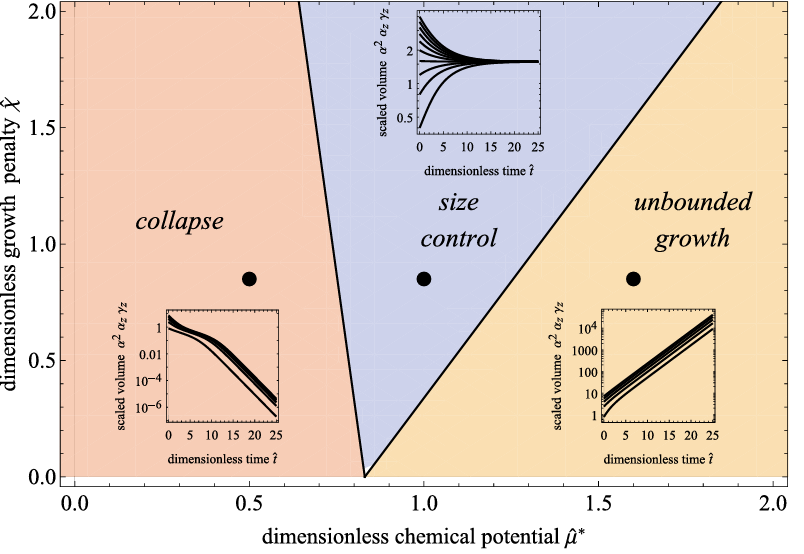- Share
- Share on Facebook
- Share on X
- Share on LinkedIn
Recruitment

Objective
Evaluate how the nutrients availability and mechanical stresses interplay to determine the final size of a colony of eucaryotic cells, both in 2D cell culture and in 3D multicellular aggregates.
Context
The mechanism by which cells measure the size of the organ in which they are embedded, and arrest their growth when the final size is reached, is a long-standing problem in developmental biology. The role of mechanics in this feedback is considered important. However, considering only mechanics is not sufficient to predict the finite asymptotic size (‘size control’). A recent work modified the classical framework1 by including an energetic cost associated with growth, leading to the physical effect of size control. The proposed model captures several experimental observations, such as the final size, the residual stress profile and the emergency of a necrotic core in multicellular aggregates.
Student Contribution
To test the theoretical hypotheses, the student will establish a protocol to grow cell colonies in 2D and 3D, under controlled conditions, both in terms of resources availability and mechanical stress. The internship will be held in close collaboration with the LIPhy theory group.
Related Publication by the team
Mechanical feedback in regulating the size of growing multicellular spheroids. A. Erlich & P. Recho; Journal of the Mechanics and Physics of Solids (2023) 178, 105342
Background and skills expected
The student should be either a physicist or a biologist, who would like to work at the interface between the two disciplines.
Competences that will be acquired during the internship
Cell culture and manipulation, microfluidics, microscopy and data analysis.
Supervisors
Giovanni CAPPELLO, Alexander ERLICH
Download
Contact
Giovanni CAPPELLO
MICROTISS team
giovanni.cappello univ-grenoble-alpes.fr (giovanni[dot]cappello[at]univ-grenoble-alpes[dot]fr)
univ-grenoble-alpes.fr (giovanni[dot]cappello[at]univ-grenoble-alpes[dot]fr)
Web page
- Share
- Share on Facebook
- Share on X
- Share on LinkedIn